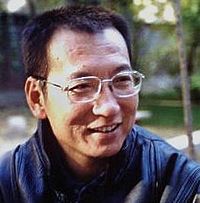USCIRF Applauds Awarding of the 2010 Nobel Prize to Liu Xiaobo

October 2010 – Washington, D.C.
In a press release of 14 October 2010 the United States Commission on International Religious Freedom has applauded the awarding of the 2010 Nobel Peace Prize to imprisoned Chinese dissident Liu Xiaobo, one of the writers and first signers of of Charter ’08, a document that included a call to the Chinese government to “guarantee freedom of religion and freedom of belief, and implement separation of religion and state so that activities involving religion and faith are not subjected to government interference.” As reported in the USCIRF press release, Liu Xiaobo, in a 2006 article “Changing the Regime to Change Society,” had cited St. Thomas Aquinas’ notion of political virtue as critical to the reform of China’s political system: “virtuous good governance lies not only in maintaining order, but even more in establishing human dignity … [recognizing that] humans exist not only physically, but also spiritually, possessing a moral sense … that is the natural source of our sense of justice.” These ideas were foundational for the Charter, which originally was signed by more than 350 Chinese intellectuals and activists.
Chair of the bipartisan USCIRF Leonard Leo, praised Liu Xiaobo -“for millions in China and around the world, he represents the best of China’s future” – and called upon U.S. leaders to make urging the release of Liu Xiaobo and other imprisoned Chinese human rights activists a significant part of their dialog with Chinese leaders.